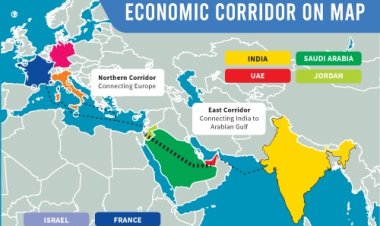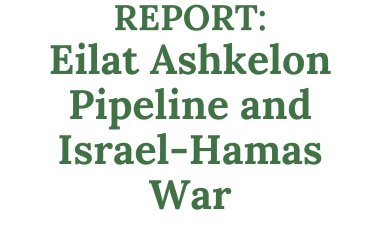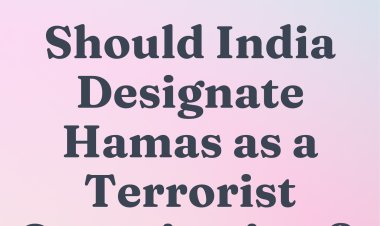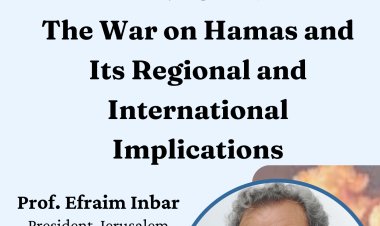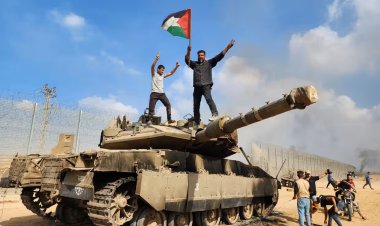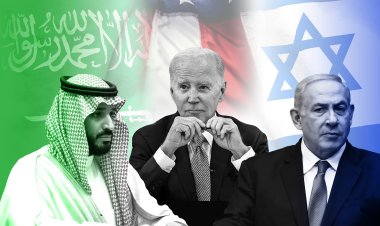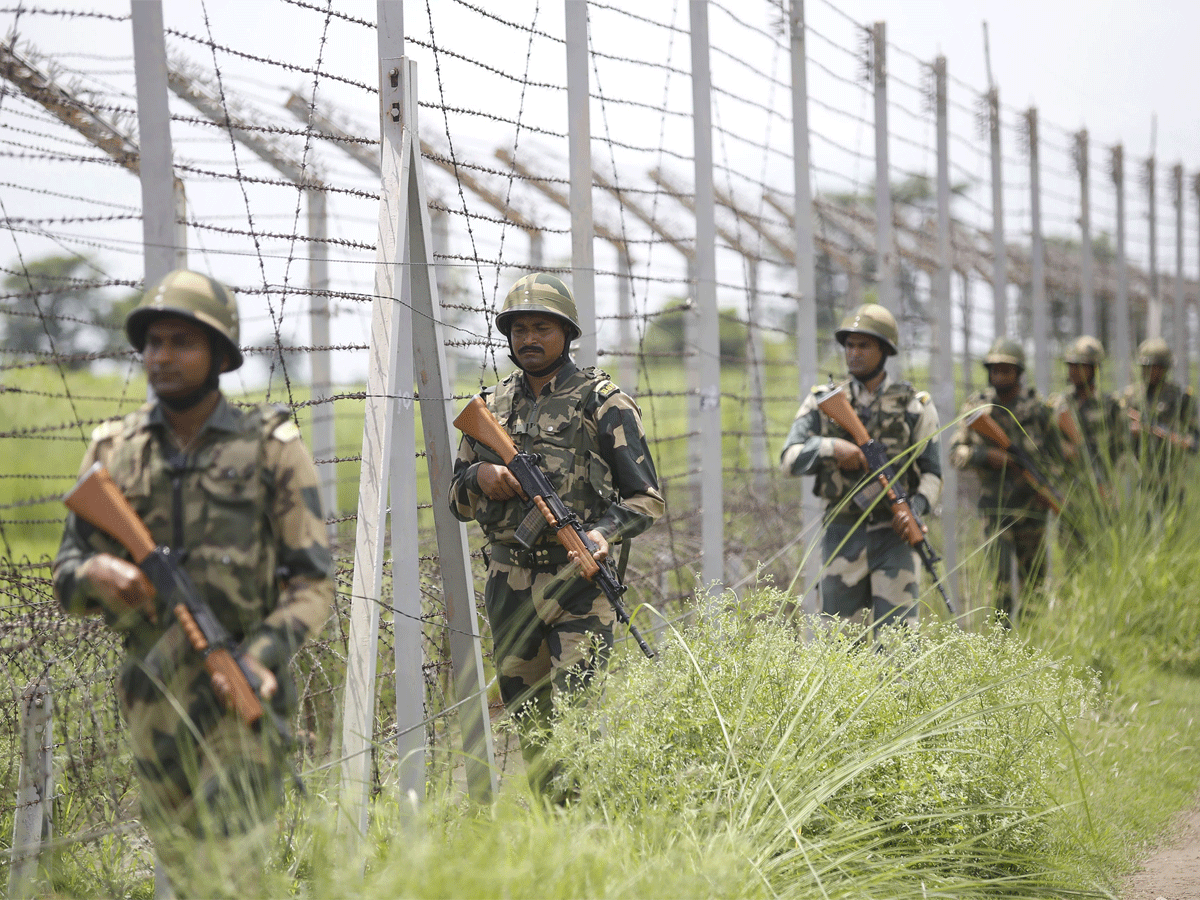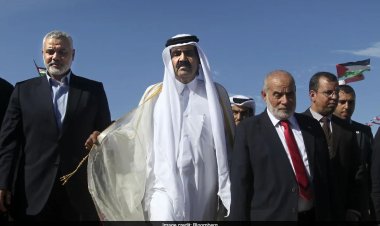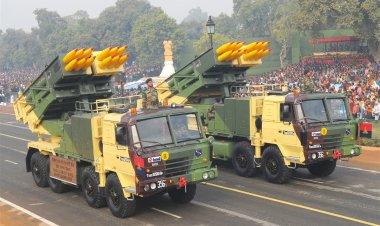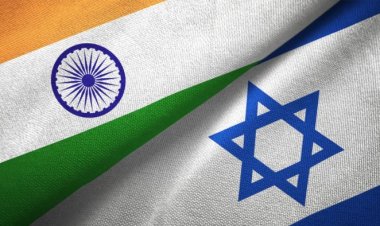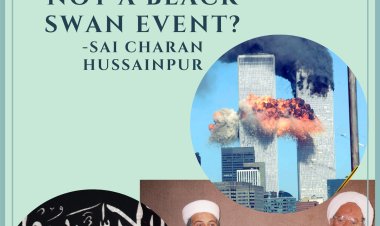Explained: The Israeli-Palestinian Conflict
As the fight between Israel and Palestine continues to echo all over the world, this article looks at all the significant factors behind it and incidents which took place since Israel declared independence in 1948. This article also examines the role India has played with regard to both the countries involved and the role it seeks to play in the future.
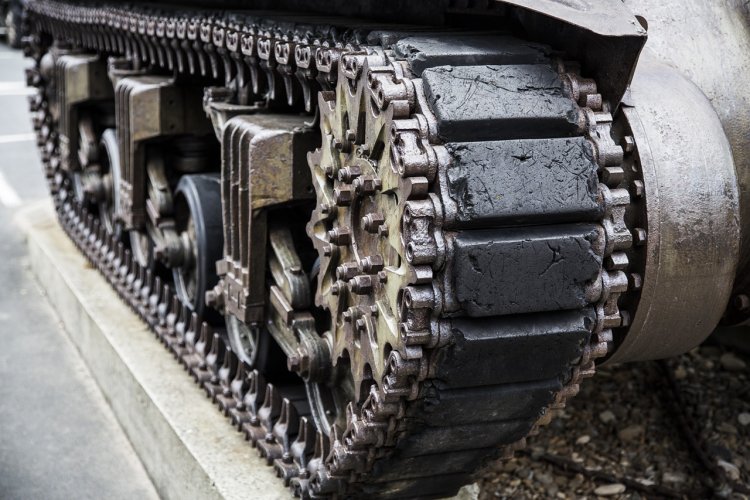
Explainer
By Debdoot Basu Ray
The Israeli Palestinian conflict is an ongoing major conflict since 1948— the year Israel was officially founded, although the roots of the conflict can be traced back much further. At its heart, the conflict is over competing territorial claims where compromise has been difficult to achieve. The conflict boils down to "who gets what land and how it is controlled."
In the late 19th century, the Ottoman Empire ruled over what is now claimed as 'Palestine', and records reveal that the population was 87% Muslim, 10% Christian and 3% Jewish. In the aftermath of the Jewish holocaust, Jews fleeing persecution in Europe wanted to establish a national homeland in the Ottoman and later British Empire. Zionism—the concept of Jewish nationalism—imagined Israel as a state for Jews, more than a Jewish state. In 1917, the British issued a public statement announcing support for establishing a "national home for the Jewish people" in Palestine, then an Ottoman region with a small minority Jewish population. The majority Arab population resisted this, claiming control over the land, manifesting itself as one of history's most protracted conflict, including two wars—1948 Arab-Israel War and the 1968 Six-Day War. Although the United Nations tried to mediate and proposed a "two-state solution" to the problem, although preferred by citizens on both sides—it has been challenging to achieve due to diplomatic deadlock over the terms of such a solution. The current borders largely reflect the reality of the 1948 and 1968 wars.
The Two Wars
The Arab Israeli War of 1948 broke out when five countries, Jordan, Syria, Egypt, Iraq, and Lebanon, invaded the territory in the former Palestinian mandate immediately following the announcement of the independence of the state of Israel on May 14. However, due to mismanagement within the Arab coalition, fierce Israeli counterattacks, and the Israeli Defense Forces (IDF) mustering more troops, the war ended with Israel capturing more than half of the region allocated to Palestine. At the same time, Jordan and Egypt occupied the West Bank and the Gaza Strip, respectively.
The six-day war—a brief but bloody conflict—broke out June 1967 between Israel and the Arab states of Egypt, Syria and Jordan. Following years of diplomatic friction and skirmishes between Israel and its neighbors, Israel Defense Forces launched preemptive air strikes that crippled the air forces of Egypt and its allies, which left Israel in control of the West Bank and Gaza Strip— both home to large Palestinian populations.
The West Bank is a large chunk of land east of Israel and home to nearly three million Palestinians; it was also the heartland of the ancient Jewish state. After the 1967 War, Israel gained control over these regions, further diminishing Palestine's geographic area of control, and they were forced to scatter around the remaining land they had. Gaza is a densely populated strip of land that Israel mostly surrounds with an almost whole Palestinian population. Israel used to have a military presence but withdrew unilaterally in 2005 and is currently under Israeli blockade. Annexing Gaza and the West Bank served two purposes. Firstly, Israel gained control over the holy land of Jerusalem— Israel's current capital, which Palestinians claim part of for their future capital and home to the three major Abrahamic religions—Islam, Christianity, and Judaism. Secondly, control over the Gaza Strip ensured unabated access to essential naval sea routes, which was crucial for Israel's economy.
Oslo Talks and Further Conflict
Since the 1967 War, Palestine started to rely less on other West Asian powers to intervene since Jordan and Egypt signed treaties with Israel. Apart from Iran, most West Asian powers today recognize or co-operate in some form with Israel. In 1964 the autonomous Palestinian Liberation Organization (PLO) came into existence lobbying for Palestinian rights. Violence continued on both sides for years without any solution at sign due to the uncompromising stance taken by both sides.
A significant breakthrough was achieved with the Oslo I Accords. The Oslo Accords was a US intervention to stop the cycle of violence between Israel and Palestine. This provided for creating Palestinian interim self-government, the Palestinian National Authority, and the withdrawal of IDF from territories. A second agreement, Oslo II, followed in 1995 and granted Palestinian autonomy in certain parts of the West Bank and Gaza. This was a fragile truce. In 2002 Israel reclaimed their West Bank cities. Hama's presence in Gaza has aggravated tensions as violence, clashes, protests and bombings between both sides have increased in frequency. Founded in 1987, Hamas opposed the views of the PLO and sought a different approach to end the ongoing conflict. In 2007 they occupied the Gaza Strip and had had conflicts with the IDF. In 2014 one of the deadliest wars broke out between Hamas and the IDF—known as the Gaza War—which saw innumerable deaths on both sides and further renewed tensions and conflicts.
2021 Israeli-Palestinian Clashes
On September 11 2020, Bahrain followed UAE—joining Egypt and Jordan—recognizing Israel and agreed to hold official ties and diplomatic relations. This was a fundamental shift in the region's geopolitics as more and more West Asian powers were now holding ties and relations with Israel, which was frowned upon earlier. However, the tensions between Hamas and IDF continued to grow. On May 12 2021, Israel reported the death of over 53 Hamas members and around 6 Israeli soldiers in what turned out to be the most significant ariel conflict in the region since 2014. Fresh tensions started to rise in the holy month of Ramadan when Palestinians reported abuse from IDF as they were not allowed to gather in places of worship—due to the ongoing Covid restrictions.
Israel claims that tensions started when Arab far-right supporters attacked Jews and uploaded videos of torture on the popular video streaming app 'Tik Tok'. Far-Right Jews started protesting in Damascus, which was already under heavy internal pressure and low morale. Israel decided to barricade the old city of Damascus to prevent any further clashes during Ramadan.
Protests escalated over the threatened eviction of dozens of Palestinian families from the East Jerusalem neighborhood of Sheikh Jarrah. Confrontations also erupted at the Al-Aqsa mosque compound. Over four days, Israeli police fired tear gas and stunned grenades at Palestinians in the compound who hurled stones and chairs at the forces. At times, police fired stun grenades into the carpeted mosque while Palestinian youth tried to start fires and use firecrackers to makeshift bombs on the Israeli forces. This has led Hamas to call a third intifada or uprising against the Israelis and the Israeli government. Since this declaration was made, about 1,000 rockets have been fired at Israel, while relentless airstrikes have pounded the Gaza Strip. The triggers for the latest violence are hugely sentimental and may see themselves continue over an extended period to avenge the violence caused during Ramadan.
India: A neutral observer
In 1949 India was amongst the few countries to oppose the partition plan of the UN and fully recognized the sovereignty of the Palestinians. However, burgeoning relations with Israel has compelled India to take a more nuanced approach to this issue, reflecting the changed reality of the time. India, therefore, is striving to maintain a balance between India's historical ties with Palestine and nurturing the blossoming ties with Israel. To understand New Delhi's nuanced position—we need to understand how Indian foreign policy has evolved over the decades. India actively supported the Palestinian cause and withheld full diplomatic relations with Israel until 1991, hoping that this position might earn Arab states support for its position on the Kashmir dispute with Pakistan—to the extent that in 1975 when India voted for 'Zionism' to be seen as a form of racial discrimination. However, things began to change in the 1980s as Indo-US relations started evolving from Cold War stagnation. When the Madrid Peace Process was launched in 1991, India announced its full recognition of the country. The US declaration of 'The War on Terror' saw India and Israel find convergence over the common threat from Islamic militancy. The growing ties between Israel and India are evident both in the economic and military spheres. Non-defence trade between the two countries climbed as well over the years under both the UPA and NDA governments. Relations arguably reached their zenith when PM Modi became the first Indian Prime Minister to visit Israel and opt-out of specific critical phrases while meeting with Palestine President Mahmoud Abbas. More evidence as to India's shift in diplomatic prioritization becomes evident from India abstaining on a vote in the UN on the 2014 Gaza Conflict— a shift from its traditional posture of supporting Palestine at the United Nations. However, India continued to emphasize that their relations with Palestine are independent of their relations with Israel, although the intensification of the Israel-Palestine conflict complicates such a posture.
At the third United Security Council emergency meeting in a week—on May 17—concerning the escalation of violence, India reaffirmed its traditional support for Palestine. Still, it stopped short of making any direct reference to the status of Jerusalem or the future borders between the two countries. "In conclusion, India reiterates its strong support for the just Palestinian cause and its unwavering commitment to the two-state solution," he said.
Such a position reflects that despite the current governments visibly vocal and seriously calls for prioritizing partnership with Israel dictated by realpolitik concerns, India continues to have a soft spot for Palestine. The latest should not be read as "pro-Palestine" in the ongoing conflict but a calculated move in the balancing act between both sides. By reiterating the need to de-escalate and maintain peace, India has refrained from taking any sides while remaining committed to a balanced approach.
Debdoot Basu Ray is a research intern with the Usanas Foundation.
Disclaimer: This paper is the author’s individual scholastic contribution and does not necessarily reflect the organisation’s viewpoint.

